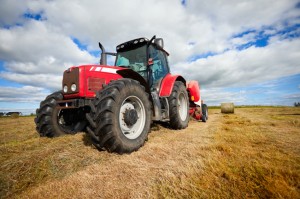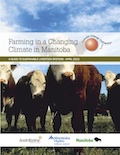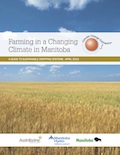 On this page, we discuss these ideas for reducing greenhouse gas (GHG) emissions from farm vehicles:
On this page, we discuss these ideas for reducing greenhouse gas (GHG) emissions from farm vehicles:
Click a link in the list above to jump to that topic on this page.
Farm practices that reduce the need for equipment and vehicles without productivity losses have benefits for both farm budgets and the environment.
Rationalizing the use of vehicles and equipment and making fuel-efficient choices will reduce GHG and improve profits. Enhancing the energy efficiency of farm homes and buildings can also reduce demand for fossil fuels.
For a look at alternative vehicle fuels such as ethanol and biodiesel, see our Alternative fuels page.
Fuel-saving strategies
Adopting fuel-saving strategies can be a huge step towards lowering GHG emissions from farms. In 2009, almost 5 percent of all GHGs created in Canada were from off-road gasoline and diesel transportation.(1)
In 2003, Manitoba passed the Biofuels Act, mandating the availability of at least 8.5 percent of gasoline sold to be an ethanol blend. Similar legislation came into event for biodiesel in 2009, where 2 percent of all diesel fuel must be biodiesel.(2)
Because agriculture is highly dependent on fuel consumption, using biofuels are already helping to reduce GHG emissions created by the province. The Biofuel Acts are thought to have reduced GHG emissions by the equivalent of taking more than 63,000 vehicles off the road every year.(3)
Here are some suggestions for reducing fuel consumption:
- Regular machinery maintenance will ensure that equipment is operating at peak efficiency.
- Correct tire pressure can use up to 20 percent less fuel and improve productivity by more than 5 percent.
- Keeping fuel and air systems clean
- Selectively using the throttle during farm operations
- Reducing tillage or limiting field passes by performing multiple operations in one pass will reduce fuel consumption.Farm vehicles reference list(4)
- Limiting idling times will also save fuel and cut emissions.
Biogas use
Biogas is the use of organic wastes to produce gas for generating heat and power. On-farm biogas production offers the benefits of nutrient management, odour control and pathogen reduction.
However, current biogas technologies are expensive and not an easy alternative for most farmers. Research is being undertaken by the University of Manitoba to further education and implementation opportunities in the province.






